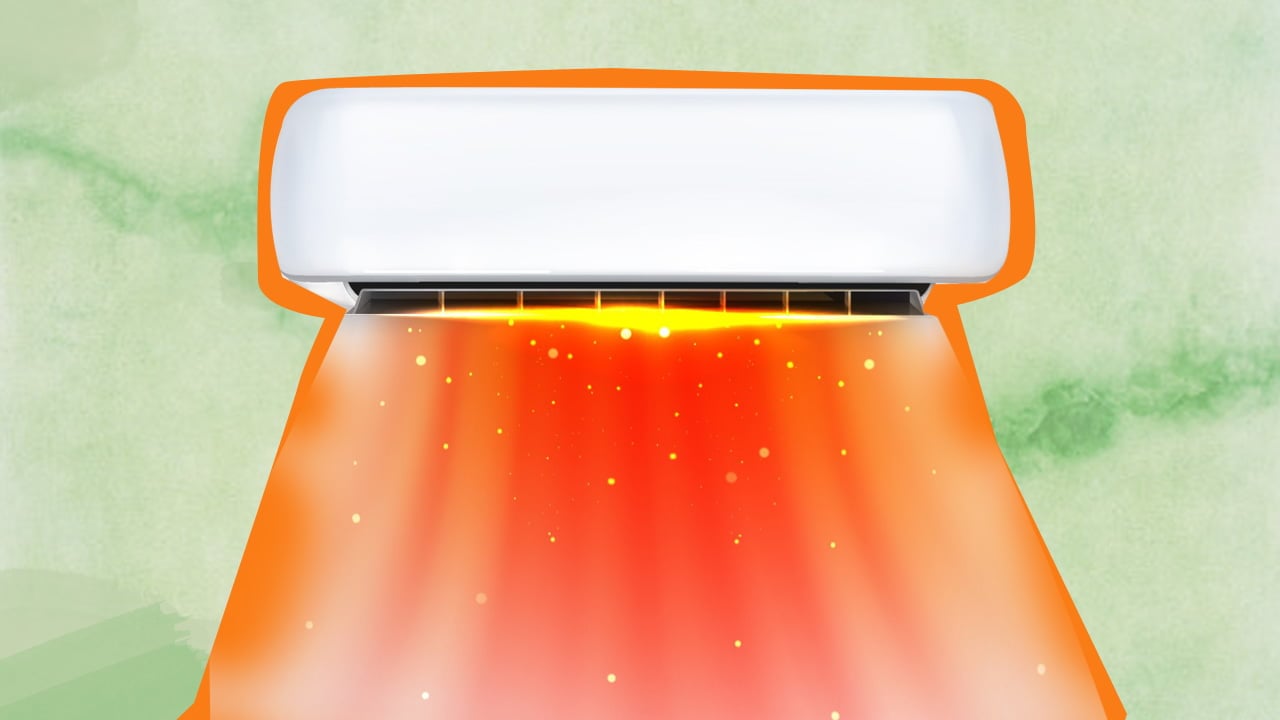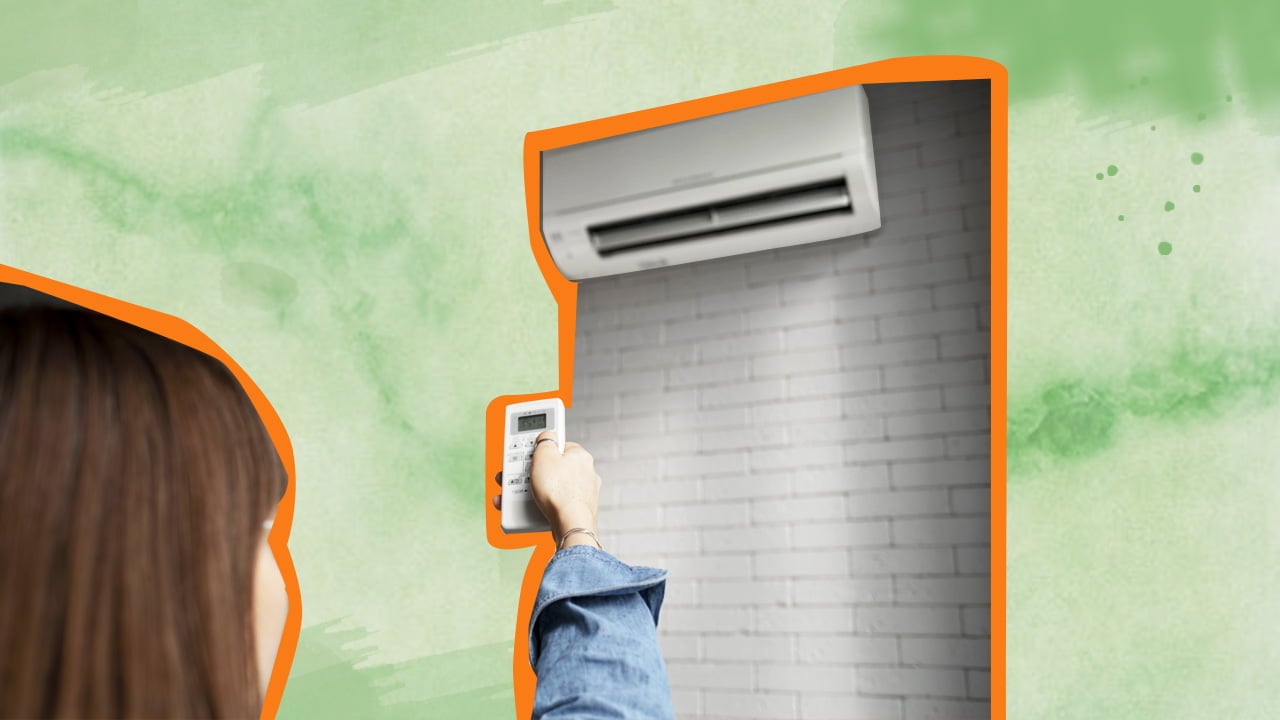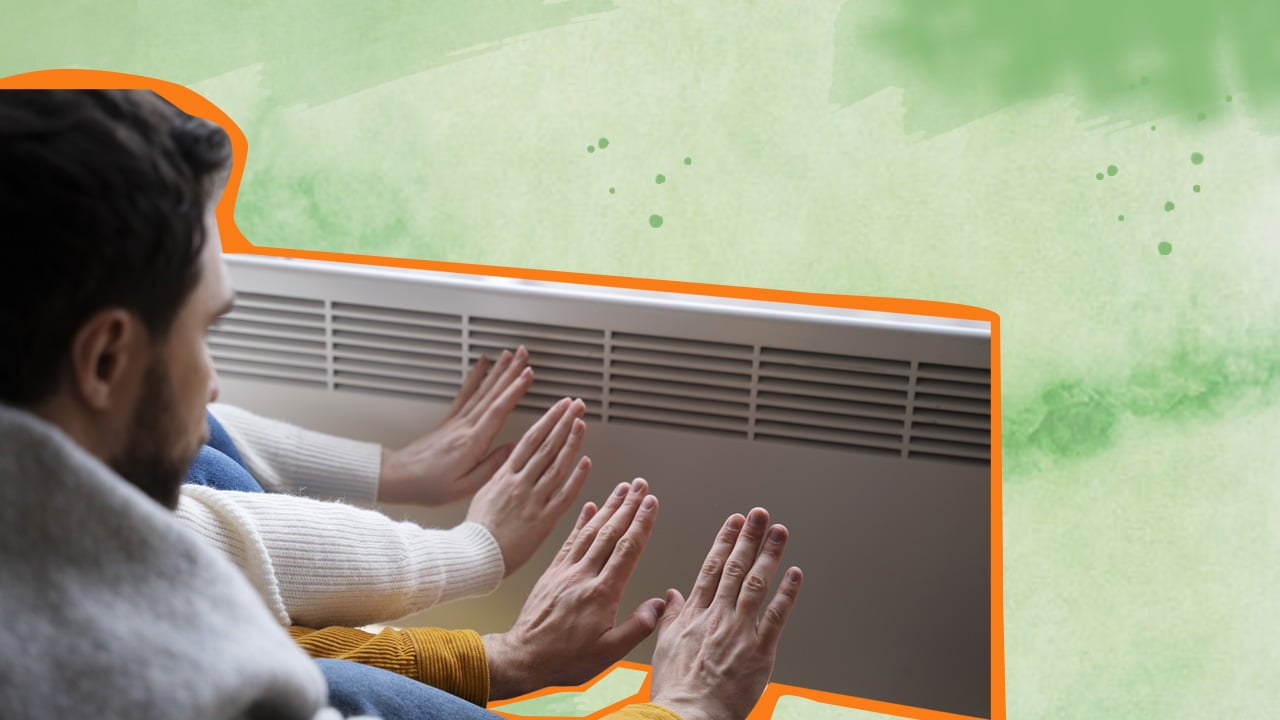There are several reasons why your AC might not be blowing cold air. It could be something as simple as a power surge, clogged air filters and registers, or an incorrectly set thermostat. Or, you might be facing issues like a refrigerant leak and frozen evaporator coil, which are difficult to troubleshoot without professional assistance.

Imagine this - you return home one hot summer evening to find the AC not cooling the space properly. This is a dreaded nightmare that I’ve encountered recently.
Now, you obviously won’t think twice before calling a professional for an emergency HVAC repair service. But based on my experience, it helps if you know the possible causes and inform the technician accordingly to speed up the process.
So, here I am with the 13 most common reasons your AC might not be blowing cold air.
13 Reasons Why Your AC Might Not Be Blowing Cold Air

1. Power Fluctuations
Electrical surges and power fluctuations may cause disruptions to the electrical circuit powering your AC unit. A power surge might have blown a fuse or caused the breaker to trip. So, try resetting the breaker and then switch on the air conditioner to check if the problem is solved.
2. Clogged Or Dirty Air Filter
Another common reason your AC might not be blowing cold air is a clogged filter, usually found inside the indoor air handler unit. The primary function of the air filter is to trap dirt, dust, and other airborne particles and prevent them from entering the air conditioning system.
But if your air filter is dirty, it will obstruct the airflow, and your AC will have to work harder, increasing both energy bills and the chances of wear. That’s why I think replacing your air conditioning system’s air filter every three months (depending on the usage) is important. You may also clean the dirty air filter if it seems otherwise fine.
3. Low Refrigerant Or Refrigerant Leak
Refrigerant (also known as Freon) is a chemical coolant that passes through the indoor and outdoor coils of the air conditioning system while changing from liquid to gaseous form. It produces cool air by absorbing the humidity and heat trapped inside your home and releasing it outside.
Now, while the refrigerant levels in air conditioning systems don’t diminish with time, you might come across a refrigerant leak. Consequently, the air conditioner won’t be blowing cold air due to the low refrigerant level.
Here are a few other signs indicative of refrigerant leaks:
- AC takes a very long time to cool the space, resulting in your air conditioner running for longer hours
- You hear a buzzing noise when the air conditioner is on
Warning
Do not try to repair a refrigerant leak on your own, as it’s an EPA-approved chemical substance that should only be handled by a certified expert. Get in touch with an HVAC professional instead, as they have the tools and expertise to deal with refrigerant leaks and replenish the coolant as needed.
4. Clogged Condenser Coil
Your air conditioner may not blow cold air if the condenser coil is dirty. Now, for the unversed, a condenser fan draws air from the outdoor unit through the condenser coil, removing the heat from your home in the process. But it often gets clogged due to dirt, debris, and other particulates over time, reducing the overall efficiency of the AC.
That’s why you should clean the outdoor condenser unit regularly with soap and water. You could also try brushing away the dirt or use a low-pressure hose to remove the dust from the coil.
Tip
Invest in a weatherproof cover for when your AC unit is not in use. This will help minimize the dirt in the coil in the near future. And ensure that the area around the outdoor condenser unit is trimmed, weeded, and devoid of overhead tree branches.
5. Undersized Air Conditioner
Air conditioners that are too small for a home will not cool the space efficiently. That’s why it’s important to consider the size of the room whenever you plan to invest in a heating, ventilation, and air conditioning system.
If you’re unsure about the measurements and size, seek assistance from an HVAC professional. They will help you find a system that suits your requirements.
6. The thermostat Is Not Set Correctly
Auto, heat, and cool - these are the three thermostat settings that may be why your AC system is not cooling the room efficiently. So, check to see if the thermostat is set to the right temperature.
After all, your central AC unit will not blow cold air if the room temperature rises above the control settings. For example, if the thermostat is set to 25 degrees C (77 degrees F) and the air conditioner setting is at 28 degrees C (82 degrees F), you won’t feel a dip in temperature.
Reset the thermostat and keep the temperature setting of the air conditioner a few degrees lower than that of the thermostat. For instance, set it at 20 degrees C (68 degrees F) if your home is anyway registering a temperature of 24 degrees C (78 degrees F).
7. Air Duct Leak
A leak in the air ducts is another common cause of the AC not blowing air to cool the entire room. The leakage will cause the cold air to filter out into the walls of your home before it can even reach the vent, disrupting the circulation of conditioned cold air.
Tip
Leaks in the air duct can be tricky to identify. So, I suggest using an incense stick to trace the airflow path. If you see that the air is being circulated throughout your home, it means that your central air conditioning system is working properly. But if the smoke flows in one direction, it might indicate a leaking duct system.
8. Evaporator Coil Issues
Every central air conditioning unit consists of an evaporator coil as an indoor component. It’s responsible for removing the humidity and heat from the air as the latter passes through it. But the evaporator coil may sometimes freeze when the refrigerant levels are too low. This happens because the compressor works too hard to blow cool air into the room.
That said, here are a few signs indicative of a frozen evaporator coil:
- The most obvious is - AC not blowing cold air
- Increase in energy bills
- Frost or ice on the copper refrigerant tubing coming from the fan coil cabinet
- Condensate seeping from the indoor AC units
9. Condensate Airflow Switch
The condensate airflow switch prevents the air from escaping the air duct when it’s unable to circulate. It’s usually located on the blower motor of the central air conditioner.
You should always check the position of the switch whenever you notice the room is not cooling properly. If the condensate airflow switch is in the downward position, it will block the conditioned air from circulating. And if it’s in the upward position, the cool air can escape.
10. Blocked Or Clogged Registers
Registers or vents are a part of the heating, ventilation, and air conditioning system of the house. They help distribute cool air throughout your home, but if they get blocked, the airflow will be obstructed, similar to dirty air filters. This usually happens if furniture or other household items like potted plants are placed in front of the vents.
So, ensure you remove these items and clean the registers regularly to avoid such problems.
11. Ice Buildup
Ice buildup in your air conditioner is a sign that the refrigerant levels of the unit aren’t charged properly. And if the levels are too low, the compressor, evaporator coil, and other internal components of the AC system might freeze up and get damaged.
An easy way to diagnose a refrigerant leak is by testing the air conditioner using a refrigerant leak detector. But it’s better to let a professional HVAC technician tackle the problem.
12. Clogged Drain
The drainage system of your central air conditioning system comprises drain pipes to transport condensate from the indoor unit to the exterior. But a clogged drain will, of course, obstruct the condensate water flow, damaging the indoor unit as a result.
So, if you notice no cold air blowing or your air conditioner keeps shutting down, the problem might be a blocked drainpipe. In such a scenario, I’d suggest calling a certified professional to clear the blockage and clean the unit.
13. Dirty Air Compressor
Another crucial component of any AC system - the compressor, helps circulate air throughout the home. And like the air filters, it’s prone to getting dirty over time. If that’s not the case, gasses might be leaking from the joints where the piston is connected to the shaft. This will lead to the compressor freezing up, and it will eventually stop working.
You may also hear a loud pulsating noise coming from your outdoor compressor - signaling that there’s something wrong with it. Here again, the best thing to do is call a professional if you notice any sign of a compressor leak.

Final Words
Your HVAC system not properly cooling your home during the scorching summer months is something that can be avoided.
All you have to do is schedule a bi-annual maintenance service. This will help identify refrigerant leaks and keep your energy bills in check. Likewise, clean the air filters of your air conditioner unit regularly to prevent the chances of a clog.
While I hope this guide helps you find the right solution to your problem, there is no way to pinpoint a specific cause for your AC not blowing cold air without proper inspection. You’d need a professional HVAC technician to guide you through the right course of action.
If you want to read more AC troubleshooting guides, you can check out my article “Why My Air Conditioning Smells Bad?”
